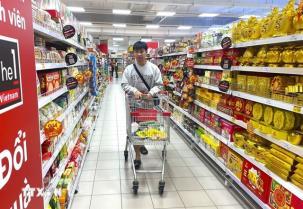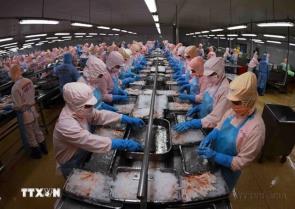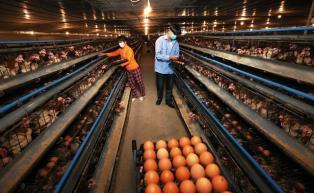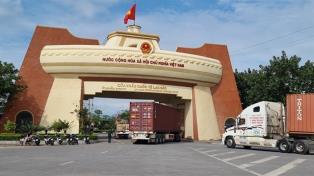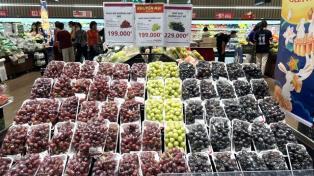The rate at which Vietnamese exporters are utilising tariff incentives remains below expectations. A major reason is that many products still fail to meet the agreement’s strict rules of origin, preventing them from qualifying for preferential tariffs.
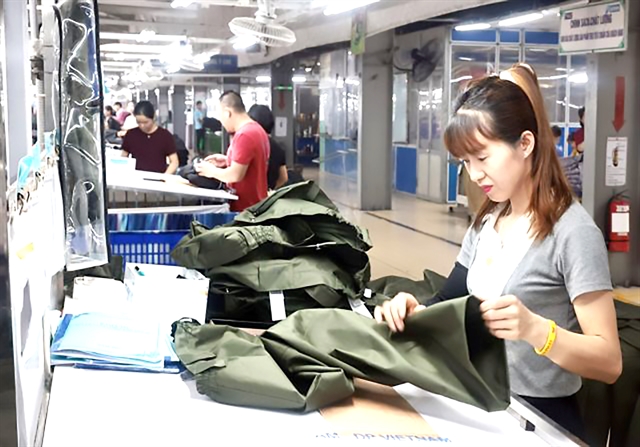
HÀ NỘI — Enterprises are being urged to make better use of the EU-Việt Nam Free Trade Agreement (EVFTA), particularly its rules of origin, to strengthen their position and increase exports to the European Union.
However, despite stable and strong growth in bilateral trade, the implementation of the EVFTA continues to face significant challenges over the past five years.
Experts noted that the rate at which Vietnamese exporters are utilising tariff incentives remains below expectations. A major reason is that many products still fail to meet the agreement’s strict rules of origin, preventing them from qualifying for preferential tariffs.
At a recent discussion, Phan Thị Thanh Xuân, vice president and general secretary of the Vietnam Leather, Footwear and Handbag Association, said that the EU is a highly demanding market with stringent technical regulations. For example, the REACH regulation, which governs the use of hazardous chemicals in products, is continuously updated and imposes strict compliance requirements.
Under the European Green Deal, a range of new regulations will come into effect in the near future, including a law on supply chain assessment and sustainability reporting requirements, Xuân said, adding that these will raise technical demands significantly, and all exporters will be obligated to comply.
“This is one of the big challenges, and if businesses do not have internal preparation and timely access to information, they will not be able to export successfully,” she said.
Furthermore, while exporters have tapped into EU opportunities with traditionally strong products such as sports shoes and textile goods, they have yet to fully explore product categories with high consumption potential in the EU.
According to Xuân, product lines such as leather goods, waterproof footwear, and labour protection shoes remain underdeveloped in terms of export volume, largely due to Việt Nam's current technological limitations. As a result, orders in these high-potential segments are still modest.
From a business perspective, Ngô Minh Phương, CEO of Việt Trường Company, said that the EVFTA has had a tangible impact on company performance.
Thanks to the implementation of the EVFTA, his company's seafood export turnover has increased by approximately 200 per cent, especially for key products with clear and verifiable origins, Phương said.
Regarding the use of EVFTA rules of origin to access the EU market, Phương stressed that the company ensures that purchasing and tracing processes meet strict standards to secure certificates of origin, qualify exports to Europe and build trust and prestige with customers.
Additionally, the firm is focusing on developing green strategies and obtaining carbon certifications to align with current sustainability trends in global markets.
To improve market access through FTAs and raise the rate of using preferential certificates of origin, Trịnh Thị Thu Hiền, deputy director of the Ministry of Industry and Trade (MoIT)'s Import-Export Department, said the MoIT has been implementing a series of coordinated solutions to support enterprises. These include developing mechanisms and policies that create a transparent legal framework on goods origin, with a strong focus on combating origin fraud.
Local authorities are also being guided to issue certificates of origin accurately, ensuring compliance for exports to FTA markets.
Additionally, the ministry has intensified training programmes and hands-on guidance for manufacturers and exporters, helping them understand and meet the rules of origin requirements under FTAs and other international trade commitments.
In addition, the ministry is working closely with customs authorities in importing countries to ensure that eligible goods receive appropriate tariff preferences. For goods found in violation of origin regulations, appropriate handling measures will be applied.
It is also actively consulting on production processes during FTA negotiations and offers ongoing support to help enterprises navigate international commitments. Administrative procedures are being reformed, and enterprises’ queries regarding rules of origin and the issuance of Certificates of Origin (C/O) are being addressed more promptly.
To improve the rate of compliance with EVFTA rules of origin, enterprises need to recognise that different markets and products are subject to different origin rules, Hiền advised.
She urged exporters to proactively seek out official information, stay updated on regulations, and maintain proper documentation and records related to goods origin. — VNS

